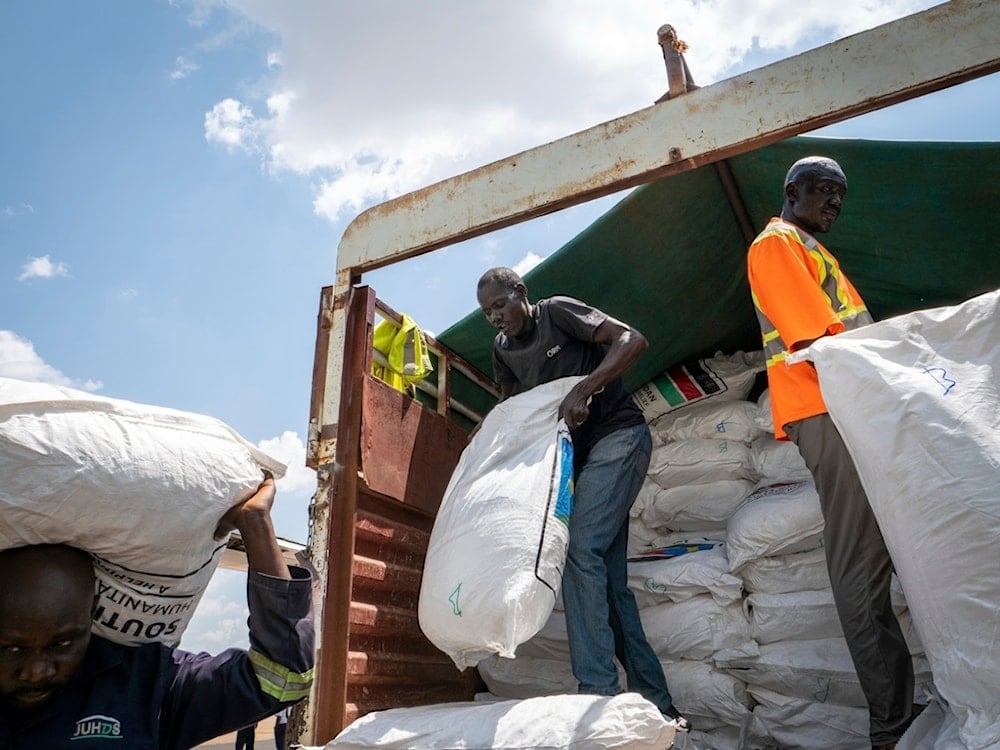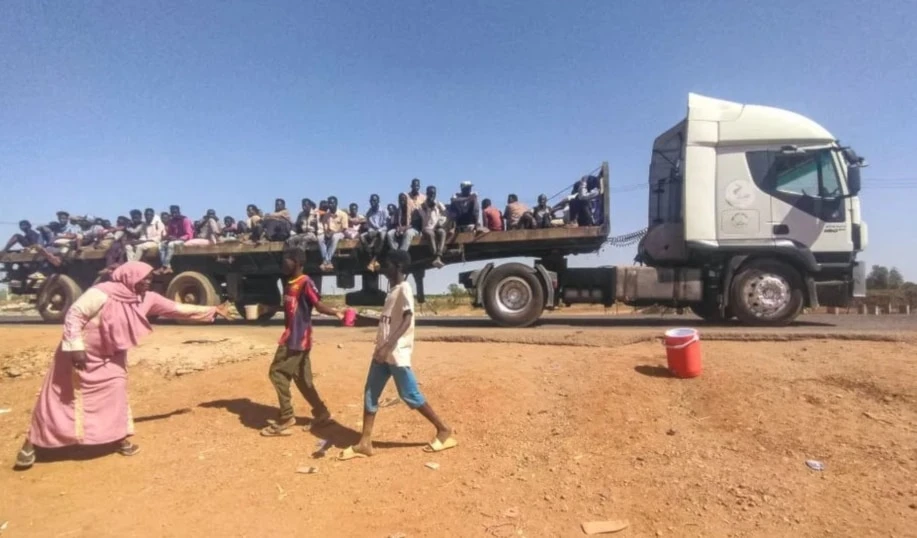Sudan gene bank looted as RSF targets vital agriculture tools
RSF forces looted Sudan’s plant gene bank, destroying over 17,000 plant genetic samples. FAO and local officials now scramble to preserve food security.
-

A Fogbow aid plane is loaded at an airport in Juba, South Sudan, on Monday, June 9, 2025, before conducting airdrops of food in the Upper Nile region (AP)
Sudan’s acting Director of the Agricultural Research Corporation, Ahmed Hass Abu Asara, revealed that the Rapid Support Forces (RSF) have looted and destroyed critical infrastructure tied to the country’s agricultural future, including a national plant gene bank.
Speaking at a joint meeting in Wad Madani between the Agricultural Research Corporation and the UN’s Food and Agriculture Organization (FAO), chaired by Gezira State Governor al-Tahir Ibrahim, Abu Asara confirmed that RSF fighters plundered and destroyed 33 refrigeration units. These units contained over 17,000 genetic varieties of plants, which serve as the foundation for Sudan’s agricultural resilience and food sovereignty.
“This gene bank is essential to preserving plant biodiversity,” said Abu Asara, warning of long-term consequences if the genetic material cannot be restored or salvaged.
Urgent plan underway to save genetic material
Despite the damage, Abu Asara affirmed that research operations are ongoing, particularly focused on germinating and restoring strains, though their survival depends on access to refrigerated storage facilities.
FAO’s Deputy Representative in Sudan, Adam Yao, confirmed that the organization is finalizing a recovery plan in coordination with international donors. “These efforts are designed to rescue and support the gene bank and preserve Sudan’s vital plant heritage,” Yao said.
Gezira State Governor al-Tahir Ibrahim pledged to back the Agricultural Research Corporation and help rebuild damaged infrastructure. He emphasized that protecting the agricultural sector is key to safeguarding Sudan’s long-term stability and food independence.
UN convoy attacked amid humanitarian crisis
A United Nations convoy delivering critical humanitarian aid to the besieged city of El-Fasher in the Western Sudanese Darfur region came under attack in June, UNICEF reported, with initial accounts indicating multiple casualties. The convoy included vehicles from both UNICEF and the World Food Programme.
The incident occurred in al-Koma, North Darfur, as the convoy awaited clearance to proceed toward El-Fasher, the only major city in Darfur not under the control of the Rapid Support Forces (RSF). UNICEF spokesperson Eva Hinds confirmed the attack but did not identify the perpetrators.
Both warring factions have accused each other of carrying out the strike. The Sudanese government affirmed that RSF drones targeted the aid trucks deliberately to obstruct humanitarian operations. In response, the RSF accused the army of launching an airstrike on the convoy.

 3 Min Read
3 Min Read










